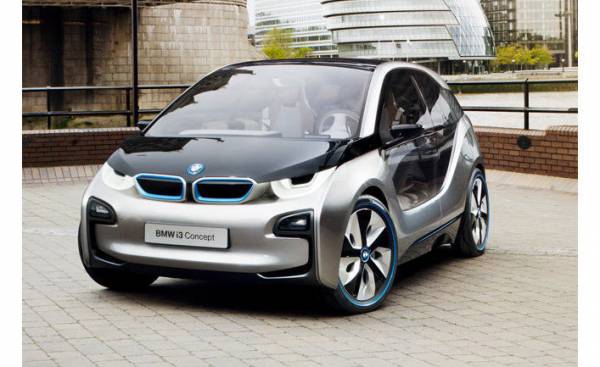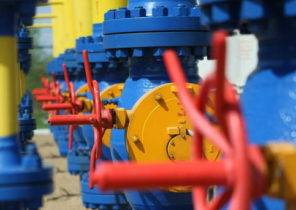
In the German automotive industry is brewing the next big scandal. After the recent so-called diesel-gate was reported that the five largest automakers for decades conspired. In particular, Daimler, BMW, Audi, Porsche and Volkswagen have agreed among themselves about techniques for cleaning diesel engines.
How serious are the charges?
If these allegations are true, the damage in monetary terms would be the lesser evil. Much worse is the loss of people’s confidence in the German automakers that, by the way, jobs for 1.2 million people. Huge damage will be caused to the international image of Germany as a country that produces cars, what is the greatest merit belongs to Daimler, BMW, Audi and Porsche.
In addition to diesel-gate, it will be another proof that the automotive industry in Germany is insufficiently regulated and controlled, whether from the Ministry of transport or the Supervisory authorities, TüV and Dekra, who were supposed to know or find out timely information that now threatens to destroy the international image of the German automotive industry.
What are the suspicions?
Accusations against manufacturers are quite specific: the suspicion that they have for many years illegally conspired originated from the Federal antitrust agencies in the past year, and in the framework of an entirely different inquiry: regarding the procurement of steel by automakers and their suppliers. However, the Agency did not respond to the media reports, but in response to our request indicated the results of the operation carried out on the territory of the six enterprises on 23 June 2016. Then the searches took place at Daimler, BMW and Volkswagen and their suppliers from Bosch and ZF. In operation, according to the Ministry, was attended by about 50 employees, and representatives of law enforcement agencies and the Federal criminal police office.
Then, according to the magazine Spiegel, was able to discover documents pointing to a possible cartel in 1990-ies. The same information is reported in turn also newspaper Handelsblatt, according to which, in the course of searches in the offices of Volkswagen, as well as on the flats and in the office of us firm Jones Day found the presentation of the Audi called “Strategy “Clean diesel”” from April 2010. It spoke of a certain “agreement of the German automakers at the management level”. It was at the same time the introduction of small containers of AdBlue. Because of larger capacity would have cost more, the companies agreed on a smaller size.
At what price it may cost the manufacturers?
Along with a large image damage, very painful for corporations can be fines in cartel. And if it turns out that the scale of the conspiracy was large, we can go of the largest fines in the history of German economy, which will amount to ten percent of the global turnover of the companies. Daimler, the figure will be about 15 billion euros, 9.4 billion the BMW, and Volkswagen, which owns a total of twelve brands, in particular Audi and Porsche, almost 22 billion — that is, an amount comparable to the fine that VW had to pay in the United States after diesel-gate. If approval Spiegel that VW and Daimler in 2016, admitted transgressions, in order to avoid large penalties, it will ultimately have to give an answer to the question, who turned himself in first and told the others in the cartel Department.
Until now, the maximum fine that the EU was issued in cartel, also addressed the automotive industry: in 2016 truck manufacturers Daimler, DAF, Renault/Volvo and Iveco were forced to pay for your many years of a cartel a total of 2.9 billion euros. The fine was avoided only “daughter” VW — company MAN, who has confessed to the conspiracy. A few years earlier, broke the cartel of suppliers to the automotive front and side Windows, where, however, German manufacturers did not participate. Then the fine amounted to 1.4 billion euros.
What complicates the legal aspect of the case?
Agreements between car manufacturers (and not only them) and their suppliers is an everyday thing, and there is nothing wrong if they do not coordinate their actions with pricing and division of markets, do not inhibit innovation and not “favoritefruit” certain business relationships at the expense of other types of relationships. So, in one only of the Union of German automotive industry (VDA) currently, there are 35 working groups, with additional subgroups in which manufacturers and suppliers at different levels to share experience, discuss costs and investments, as well as technical standards.
We are thus talking about anything from calculations to optimize transport costs. Similar working groups are also at a European level — all of this is perfectly legitimate and even desirable. Companies playing in the market, working together and as part of the procurement and during the various studies and the development of technical standards. So, BMW and Daimler declare their intention to further deepen its started in 2008, cooperation in the procurement process.
Both manufacturers buy from the same suppliers of parts and components, suitable for the production of both brands: tire covers, chair frames, pumps for coolants, etc. Another example is the production of the electric car: in this field all the manufacturers agreed that all of their cars will have the same connectors cables — much to the delight of Mennekes.
Close cooperation shows how fluid the boundaries between legal and illegal actions. Between the two purchases of tanks for AdBlue, which is mixed solution of urea to clean diesel emissions, and arrangements for their size price and suppliers is very short. According to Spiegel, the conspirators met in 60 working groups in which they over the past five years have met more than a thousand times. The conspiracy allegedly involved about 200 people.
What are the loopholes in legislation?
Its role in illegal arrangements concerning environmental standards and exhaust treatment have also played various “loopholes” in the legislation, and not enough tight control. “Laws and regulations to regulate the question of when the emissions of diesel engines must be cleaned, and when there was “leaky” — and the producers use it,” says Professor Klaus Schreiner (Schreiner Klaus), a specialist in internal-combustion engines of Constanta.
In addition, there is a suspicion that the authorities give the manufacturers too much space to maneuver. “At the end of diesel gate, one could conclude that political circles prefer to ignore,” — said the head of the Center for automotive business management (CAM) Stefan Bratzel (Stefan Bratzel). According to him, in matters of control over the execution of legislative regulations requires a qualitative leap, and in the case of violations — painful penalties.
What the consequences might be for diesel cars?
Of course, from the point of view of automakers, the new charges came quite bad time, considering the debate about the ban on entry of diesel vehicles in the city and the need for additional purification equipment. Just a week before high-level meetings — it will be held on 2 August in Berlin which dealt with the issue of diesel cars, the manufacturers came under incredible pressure. However, their weakness may accelerate the debate on how the industry could prove that with great responsibility to the protection of the environment.
Even the head of Volkswagen Matthias Mueller (Matthias Müller) already suggests that it may well be imagined, that one day will be agreed the time after which the production of diesel engines will be banned if the industry will in return receive support in the development of electric vehicles. “We are in talks with political circles,” he said. For this, according to him, the infrastructure must be improved. “Everyone knows that the future of electric transport.” According to him, the upcoming “petrol summit” it is necessary at the Federal level to find a solution that will be required for universal implementation.
How you react to financial markets?
On Friday on the stock exchanges experienced a decline in stock prices is involved in a new scandal concerns. However, in comparison with the collapse of the stock VW diesel after the start-gate (20%), it was insignificant. Still, none of the manufacturers did not respond to the allegations, and antitrust Agency only agreed to check the data. However, if it is confirmed, and the company will be fined, the exchange community will react to this even tougher. Penalties will result in costs that reduced profits concerns. This, in turn, will scare away investors. In recent months, it was already evident that investors avoid investments in securities automakers — just out of fear of such negative news.







